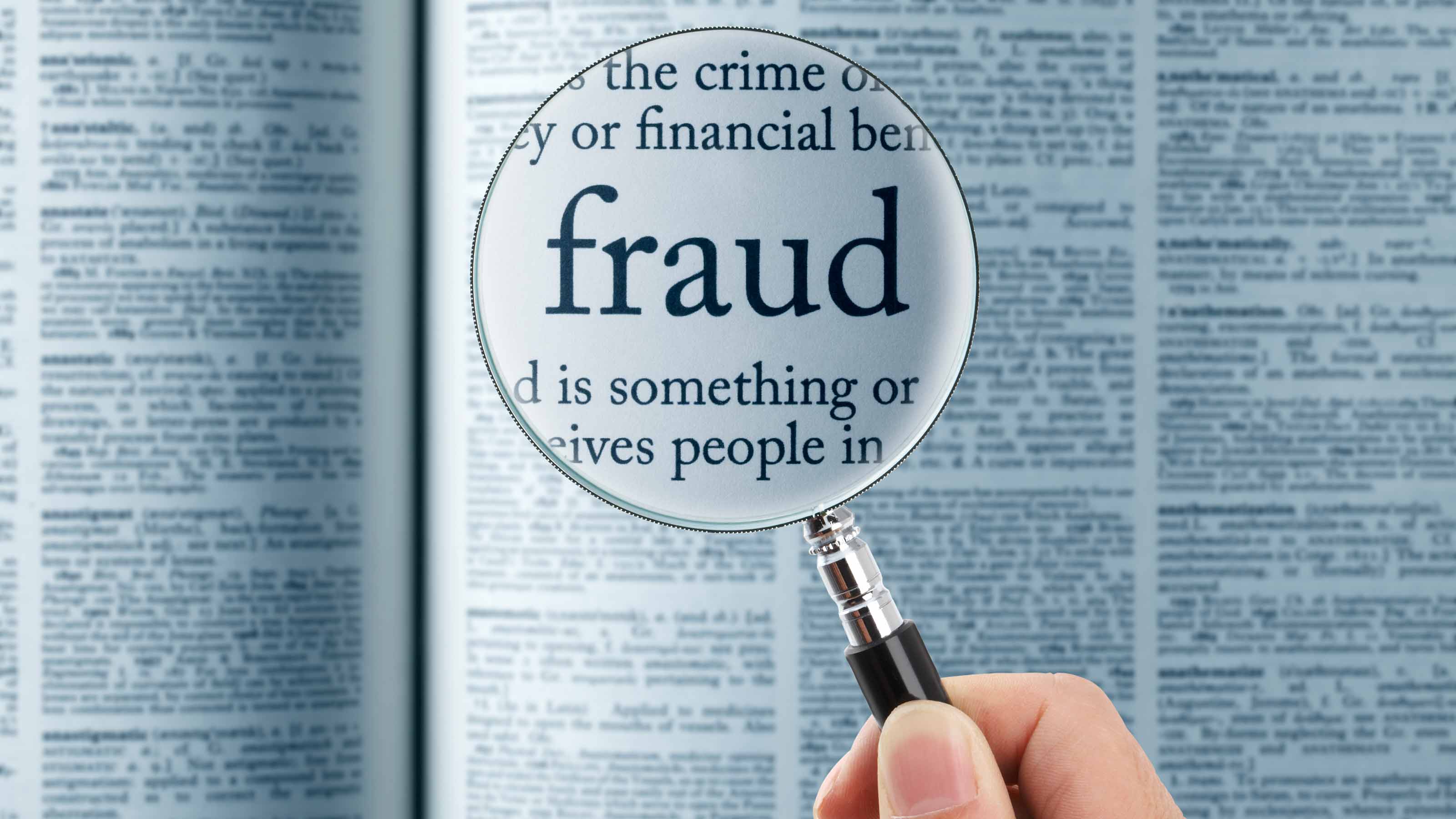Are You Committing Insurance Fraud Without Realizing It?
More Americans commit insurance fraud than you might think, and many don't even know they're doing it.


Profit and prosper with the best of Kiplinger's advice on investing, taxes, retirement, personal finance and much more. Delivered daily. Enter your email in the box and click Sign Me Up.
You are now subscribed
Your newsletter sign-up was successful
Want to add more newsletters?

Delivered daily
Kiplinger Today
Profit and prosper with the best of Kiplinger's advice on investing, taxes, retirement, personal finance and much more delivered daily. Smart money moves start here.

Sent five days a week
Kiplinger A Step Ahead
Get practical help to make better financial decisions in your everyday life, from spending to savings on top deals.

Delivered daily
Kiplinger Closing Bell
Get today's biggest financial and investing headlines delivered to your inbox every day the U.S. stock market is open.

Sent twice a week
Kiplinger Adviser Intel
Financial pros across the country share best practices and fresh tactics to preserve and grow your wealth.

Delivered weekly
Kiplinger Tax Tips
Trim your federal and state tax bills with practical tax-planning and tax-cutting strategies.

Sent twice a week
Kiplinger Retirement Tips
Your twice-a-week guide to planning and enjoying a financially secure and richly rewarding retirement

Sent bimonthly.
Kiplinger Adviser Angle
Insights for advisers, wealth managers and other financial professionals.

Sent twice a week
Kiplinger Investing Weekly
Your twice-a-week roundup of promising stocks, funds, companies and industries you should consider, ones you should avoid, and why.

Sent weekly for six weeks
Kiplinger Invest for Retirement
Your step-by-step six-part series on how to invest for retirement, from devising a successful strategy to exactly which investments to choose.
What legal authorities may consider outright insurance fraud, far too many Americans consider simply being clever with their insurance claims to save a bit of money. A new survey from ValuePenguin reveals that a surprising number of Americans try to walk that tightrope, knowingly or unknowingly, exposing themselves to potentially disastrous legal consequences.
Savvy claim filing, or insurance fraud?
Insurance experts at ValuePenguin surveyed 1,950 U.S. consumers to gauge their behavior around insurance claims. The survey reveals a surprising number of Americans engage in outright fraud or borderline illegal behavior.
The top-line finding is that 15% of home insurance policyholders and 9% of car insurance policyholders openly admit to committing insurance fraud. Below that headline, though, lurks additional danger for a larger group of insurance customers.
From just $107.88 $24.99 for Kiplinger Personal Finance
Become a smarter, better informed investor. Subscribe from just $107.88 $24.99, plus get up to 4 Special Issues

Sign up for Kiplinger’s Free Newsletters
Profit and prosper with the best of expert advice on investing, taxes, retirement, personal finance and more - straight to your e-mail.
Profit and prosper with the best of expert advice - straight to your e-mail.
Much larger percentages — 33% of home insurance and 35% of auto insurance policyholders — admit to submitting claims for preexisting damage, which is itself a form of fraud. Meanwhile, 30% of home insurance and 21% of auto insurance customers reported misleading their insurers to save money.
This suggests that up to 18% of home insurance and 26% of auto insurance customers have committed fraud without admitting or knowing the distinction, on top of the original group that candidly admit fraud outright.
A troubling generational gap
In terms of demographics, ValuePenguin found that younger Americans are more likely to mislead insurers. A whopping 39% of millennial auto policyholders admitted relying on deceptive tactics to save on insurance premiums, as compared to a smaller 16% of Gen Xers and a minuscule 3% of baby boomers.
Millennials also lead the field in fudging on their home insurance to save money. 53% of millennial home policyholders report lying or simply omitting key information when dealing with their insurers, as compared to just 23% of Gen X and 3% of baby boomers.
ValuePenguin also found that no matter the intent, younger Americans are least aware of the real consequences.
15% of Americans think insurance fraud isn't a crime, with the highest percentage among Gen Z at 26%, compared to just 6% of baby boomers at the low end. Additionally, 19% of all Americans believe insurance fraud won't affect them, with Gen Z tilting the scales at 25%.
ValuePenguin insurance expert Divya Sangameshwar says, "Insurance fraud leads to higher costs for insurers, which they pass on to consumers in the form of higher premiums. It can also lead to a scenario where insurers may decide to stop underwriting policies altogether in an area where they feel there’s a high incidence of fraud, leading to less competition and higher rates for consumers."
Stiff penalties for fraud
Insurance fraud can carry legal and financial fallout contingent upon conditions like the severity and location of your offense.
"Insurance fraud is a form of stealing, and it’s illegal in every state," according to Sangameshwar. "Whether you do it knowingly or unknowingly, you’ll face consequences that can range from higher premiums to denied claims to canceled policies to difficulty obtaining another policy in the future to potential criminal charges depending on the scope of your fraud."
She splits offenses into two categories: hard and soft fraud.
Hard fraud involves someone destroying a car, house or other property to try to collect on their insurance policy. This serious fraud involves large sums of money and usually results in felony charges, large fines and potentially jail time.
Soft fraud occurs when a person lies on an insurance application or embellishes a damage claim. According to ValuePenguin, this can be more difficult to catch and prove since it’s often an honest mistake or simply taking advantage of an insurer's lack of oversight. Punishment for soft fraud can include misdemeanor charges followed by restitution, community service or probation.
For one state example, the Michigan Department of Insurance and Financial Services considers homeowners insurance fraud in Michigan an automatic felony. Policyholders found guilty can be hit with up to four years in jail, up to $50,000 in fines plus court costs and legal fees, all on top of a permanent felony record.
"Insurance fraud is a form of stealing, and it’s illegal in every state...Whether you do it knowingly or unknowingly, you’ll face consequences that can range from higher premiums...to potential criminal charges, depending on the scope of your fraud."
Insurance expert Divya Sangameshwar
How to avoid committing fraud
Progressive Insurance offers multiple tips for avoiding the legal thicket of insurance fraud.
The company recommends being completely honest and transparent as your guiding principle when applying for auto insurance or filing a claim. Policyholders should report events just as they happened, include your proper registration address, and past driving offenses.
For homeowners insurance, Progressive similarly recommends honesty as the best policy. First time home policy applicants should truthfully answer all the questions covering topics like the home's location, its condition, and any past insurance claims. When filing a claim, contact the agent quickly to report damages or theft. Use any insurance payout for any repairs claimed as necessary, so insurers don't get suspicious if you file a claim in the future related to the same issue.
Progressive also advises policyholders to watch out for homeowners insurance scams. Unscrupulous contractors may offer to cover your deductible, give you a supposed discount, and then bill your insurance for more than you actually owe them. This can get you into hot water by extension, despite no wish on your part to defraud the insurance company.
Related Content
Profit and prosper with the best of Kiplinger's advice on investing, taxes, retirement, personal finance and much more. Delivered daily. Enter your email in the box and click Sign Me Up.

Ben Demers manages digital content and engagement at Kiplinger, informing readers through a range of personal finance articles, e-newsletters, social media, syndicated content, and videos. He is passionate about helping people lead their best lives through sound financial behavior, particularly saving money at home and avoiding scams and identity theft. Ben graduated with an M.P.S. from Georgetown University and a B.A. from Vassar College. He joined Kiplinger in May 2017.
-
 Dow Leads in Mixed Session on Amgen Earnings: Stock Market Today
Dow Leads in Mixed Session on Amgen Earnings: Stock Market TodayThe rest of Wall Street struggled as Advanced Micro Devices earnings caused a chip-stock sell-off.
-
 How to Watch the 2026 Winter Olympics Without Overpaying
How to Watch the 2026 Winter Olympics Without OverpayingHere’s how to stream the 2026 Winter Olympics live, including low-cost viewing options, Peacock access and ways to catch your favorite athletes and events from anywhere.
-
 Here’s How to Stream the Super Bowl for Less
Here’s How to Stream the Super Bowl for LessWe'll show you the least expensive ways to stream football's biggest event.
-
 Why Your Home Insurance Might Not Protect You If Someone Else Lives There
Why Your Home Insurance Might Not Protect You If Someone Else Lives ThereLetting a relative stay in a second home or inherited property can quietly change your insurance coverage and leave you exposed to costly liability claims.
-
 The 1-Month Rule for Setting Your Car Insurance Deductible
The 1-Month Rule for Setting Your Car Insurance DeductibleThe ideal car insurance deductible balances risk and savings. Here's how to find it.
-
 How Drones Can Affect Your Insurance Coverage
How Drones Can Affect Your Insurance CoverageHow insurers are using aerial imagery to assess homes, the backlash from policyholders and how state regulators are trying to rein in the practice.
-
 Does Your Car Insurer Need to Know All Your Kids? Michigan Cases Raise Question
Does Your Car Insurer Need to Know All Your Kids? Michigan Cases Raise QuestionWho you list on your policy matters more than most drivers realize, especially when it comes to who lives in your home.
-
 Is Home Insurance Tax Deductible?
Is Home Insurance Tax Deductible?With home insurance rates on the rise, you might be hoping to at least claim the cost as a tax deduction. Here's what you need to know ahead of tax season.
-
 Is Mechanical Breakdown Insurance Better Than an Extended Car Warranty?
Is Mechanical Breakdown Insurance Better Than an Extended Car Warranty?More insurers are starting to offer mechanical breakdown insurance to new car owners. What is it and should you buy it?
-
 9 Types of Insurance You Probably Don't Need
9 Types of Insurance You Probably Don't NeedFinancial Planning If you're paying for these types of insurance, you may be wasting your money. Here's what you need to know.
-
 My Teen Crashed His Car, and Now Our Insurance Has Tripled. What Now?
My Teen Crashed His Car, and Now Our Insurance Has Tripled. What Now?Dealing with the costly aftermath of a teen car accident is stressful. Here are your options for navigating it.